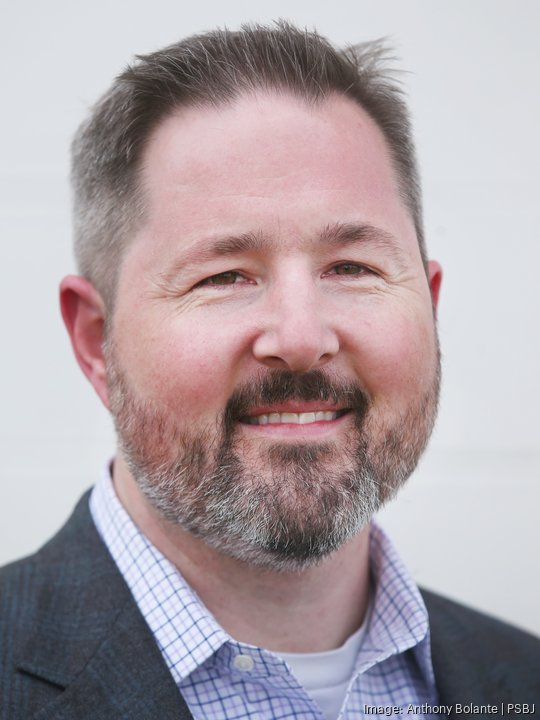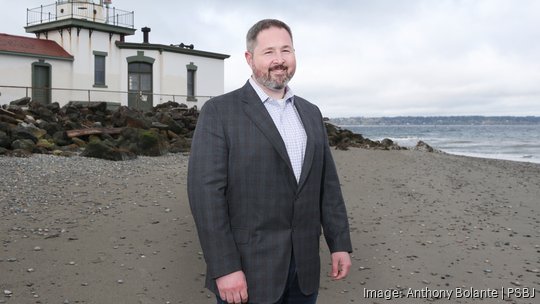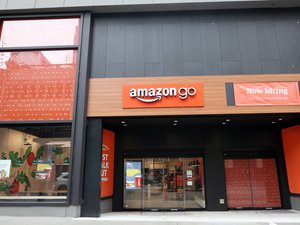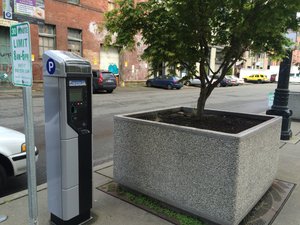
Garrett Kephart contemplated his latest career move during a seven-day hike through the Sawtooth Range in central Idaho.
Kephart, a longtime sustainability consultant, had heard about an opportunity to start a new sustainability consulting and investing firm through former Washington state Sen. Reuven Carlyle. After spending the week hiking in the wilderness, Kephart knew he wanted to join the new firm.
“I was with some of my best friends,” Kephart said about the hiking trip. “We talked about it for sure. We thought about it. There’s a lot of time to talk on the trail. But when I came back, it was literally no regrets once I made the decision. I have not thought twice about it since.”
Kephart is now co-founder and president of the firm, called Earth Finance, with Carlyle serving as another co-founder and chief sustainability officer. Bryan Weeks, former head of Russell Investments’ Americas institutional business, is the firm’s co-founder and CEO.
Earth Finance launched in February with a $14 million funding round. The firm aims to help clients meet their sustainability goals in a way that is good for the planet and good for business. Earth Finance plans to make investments to augment its consulting business.
The Business Journal spoke with Kephart about the firm’s plans, how they came together and his love of the outdoors.

About Garrett Kephart
- Position: Co-founder and president of Earth Finance
- Age: 41
- Hometown: Seattle
- Current residence: Magnolia
- Education: Bachelor’s from Colby College, master’s in public policy from The George Washington University
- Interests outside of work: Wilderness exploration, through-hiking, canoe camping, skiing, and spending time with my wife, Amy, and kids, nine-year-old Sawyer and six-year-old Ainsley
Give me a rundown of Earth Finance’s business and plans.
We are a corporate strategy, investing and technology firm. Day one, we’ve got revenue. Reuven and I were able to bring clients and serve them from a corporate strategy perspective around net-zero strategy and sustainability work. On the investing side, we’re building to models that may include venture or private equity. It may involve brokerage. It may involve a number of different project-finance-type opportunities. That’s the vision. This year, out of the gate, there’s an emphasis around consulting, and we’re building toward those investing models in 2024.
Is it going to have a Seattle focus, or will you focus on other areas, too?
As a startup, revenue is key. Right out of the gate, some of the clients Reuven and I were able to secure are based here in Seattle. But some of our clients are not based in Seattle as well. They’re in the U.S., North America and global.
Is Earth Finance looking to raise more than $14 million down the road?
There’s some strategic choices we need to make. We will likely do a Series A at some point in the next few years, absolutely. There’s strategic choices on whether we raise funds to focus on our investing solutions directly, or to do a traditional Series A. We’re going to figure that out as we go. The great position that we’re in is that we’re a startup that day one has revenue.
How did this all come together?
(Carlyle) worked with me as a strategy consultant focused on climate change. We knew each other. We’ve worked for a long time together. Reuven had a relationship with Bryan, and Bryan and he started to talk about wanting to start something. I always wanted to start my own business. I’ve done a couple small things in the past, but I was really excited at some point to do something like this. When we met and started to talk about this, it was obvious that this was going to be a really great opportunity.
You mulled things over on a seven-day hike. Have you always been passionate about the outdoors?
I’ve done a ton of wilderness guiding in the past. I spent many years in northeastern Canada guiding canoe trips to the Hudson Bay. During Covid, I couldn’t get into Canada, so I started hiking a lot more. It has been an outlet to really get into the wilderness and just reset.
What should companies be doing more of to help the future of our planet?
We are deliberately focusing on corporate value chains, meaning supplier engagements, Scope 3 carbon removals. We’re deliberately trying to focus on those areas because for a lot of companies, the direct emissions that are part of their operations represent 5% or even less of the total emissions. Scope 3 is like up to 95-plus% in a lot of industries. That’s where they can have the biggest impact. It’s also the hardest area to focus on.
(From the Environmental Protection Agency website: “Scope 3 emissions are the result of activities from assets not owned or controlled by the reporting organization but that the organization indirectly affects in its value chain.”)
This interview has been edited for length and clarity.








